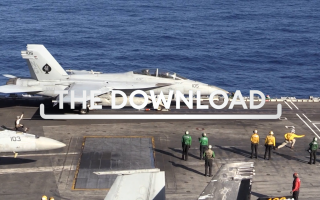Ministry of Defence plays a crucial role in UK's net zero ambition, report says
The Ministry of Defence (MOD) is under scrutiny as a significant contributor to the UK's carbon emissions, producing half of all the carbon emissions within central government.
With the UK committed to achieving net zero emissions by 2050, the latest report from the Defence Committee emphasises the urgent need for the MOD to accelerate its efforts in combating climate change.
Flooding emerges as a primary climate risk over the next five years, potentially leading to increased demands on the defence sector for assistance.
However, a potential reduction in the Armed Forces' size might strain the MOD's capacity to respond effectively.
The Defence Climate Change Report highlights the likelihood of rising temperatures rendering key training areas, like Cyprus and the Middle East, unsafe for personnel by the 2040s.
Environmental training will likely need to expand to address these evolving conditions.
Meanwhile, in the High North – the territories of Nordic countries located throughout the Arctic beyond the Polar Circle – icebreaking ships are expected to become obsolete, as the Arctic ice is expected to keep melting.
This means warships with hardened hulls could operate in this environment.
It's understood that the Russians, Chinese and Canadians are currently hardening their ships' hulls but the report says retrofitting hulls on the UK's warships would be too expensive.
Instead, it recommends that the planning of future destroyers – like the replacement for Type 45s – should scope in this requirement.
The design of warships may also have to change because cold seas are used to cool ships' engines and, as sea temperatures rise, engines will become less efficient.
The MOD is urged to prioritise the reduction of carbon emissions from its equipment while maintaining military capabilities.
Antithetically, more than 1,000 new tanks and other armoured vehicles with conventional diesel engines will enter service in the next few years and will remain in service after the Government's 2050 net zero carbon emissions target.
But there is some good news for personnel. The defence estate aims to be net zero by 2030, so improvements to housing could include updated and more efficient heating systems in the near future.
UK defence aspires to be a global leader in addressing climate threats. However, the report highlights the need for consistent emissions measurement and reporting, recommending an annual review.
Amid these changes, maintaining military effectiveness remains paramount. The report underscores that climate actions must be balanced with the capability to respond to security challenges.
To co-ordinate these efforts, the report suggests appointing a dedicated climate change director within the MOD. This individual would work across defence to ensure swift action.
The report also advocates adopting ideas from academia and industry to speed up the development of new equipment.
The MOD's Climate Change and Sustainability Strategic Approach outlines its ambitions and methods to tackle climate change while preserving military capabilities.
An MOD spokesperson acknowledged the report's recommendations, noting its alignment with ongoing defence initiatives.
In conclusion, the MOD's role in achieving the UK's net zero target by 2050 is pivotal. As climate risks escalate, the MOD's ability to adapt swiftly while maintaining security capabilities will be central to a sustainable and secure future.
In response to the Defence Climate Change Report, the MOD spokesperson said: "We will consider the report's recommendations, several of which align with work already being undertaken across defence, and we will respond in due course."








